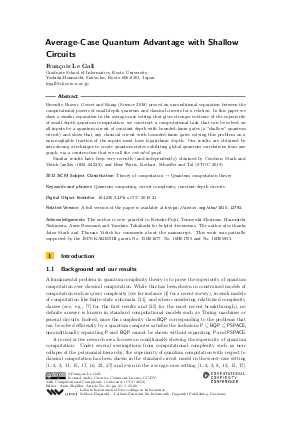LIPIcs.CCC.2019.21.pdf
- Filesize: 0.61 MB
- 20 pages

 Creative Commons Attribution 3.0 Unported license
Creative Commons Attribution 3.0 Unported license




Feedback for Dagstuhl Publishing